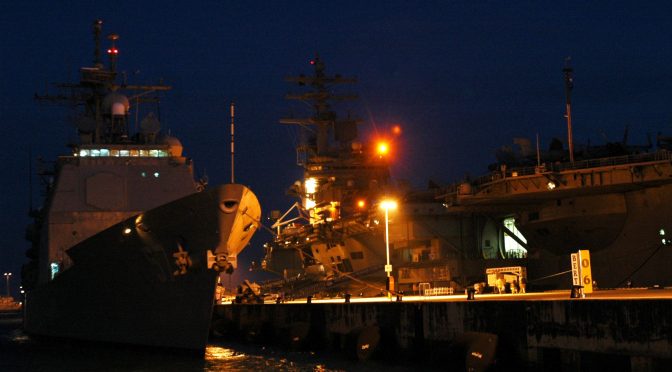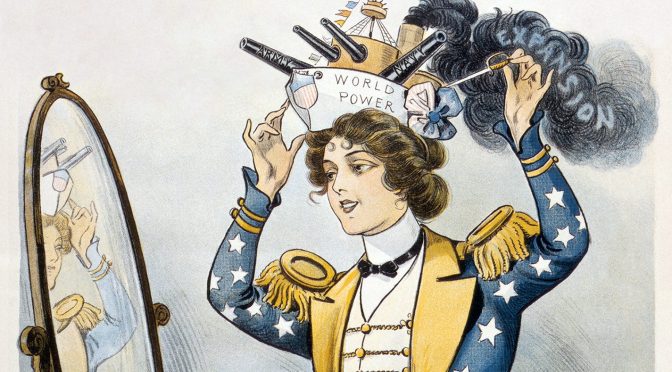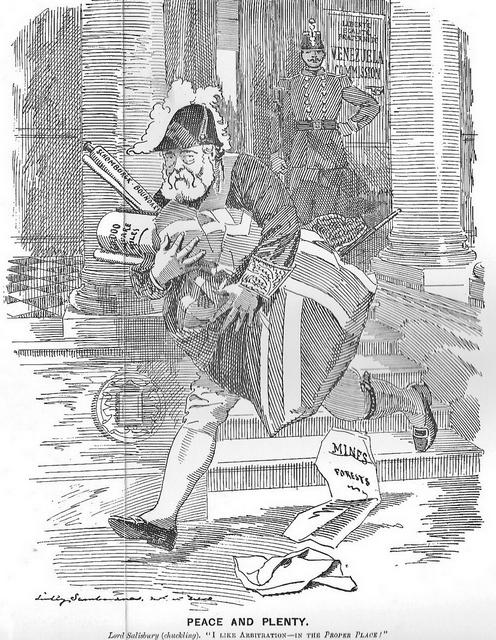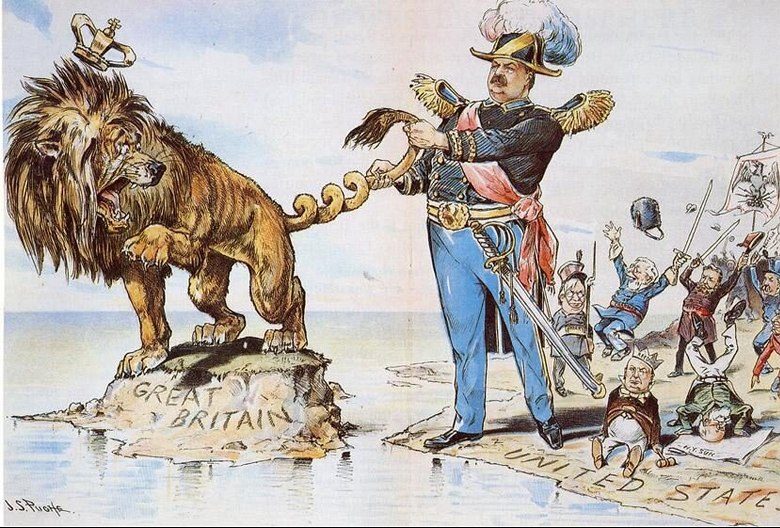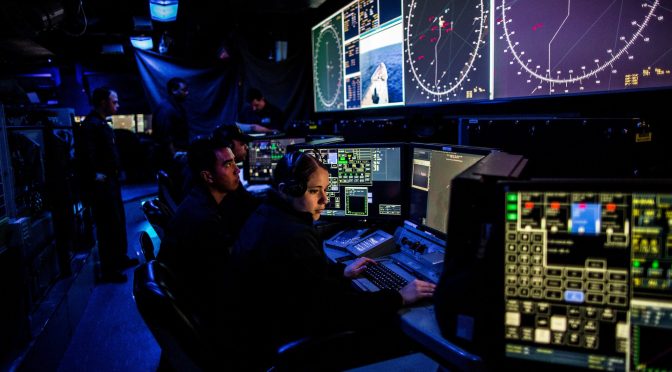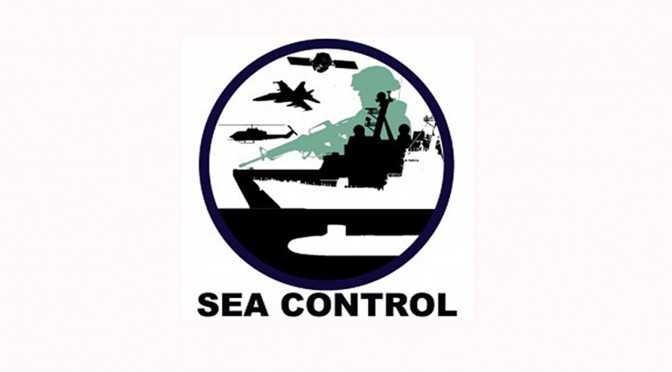It is time for a Navy-wide campaign to rethink force strategy, design, and culture for competition in a digitized world.
By Frank T. Goertner
When paradigms change, the world itself changes with them.1
— Thomas Kuhn
Return to great power competition; revisionist powers; renewed capabilities; rebuild our military: such phrases feature prominently in recent U.S. national security guidance. They convey an imperative to look to the past as the nation prepares for a potentially volatile future. For American navalists in particular, they offer nostalgic optimism. Three times in the 20th Century, the Navy confronted rivals to U.S. sea power and prevailed. As the world returns to similar heights of geo-strategic rivalry, it is tempting for Navy leaders to approach the future via plans to rebuild past success. With concerted effort, the Service can revise known strategies, renew forgone capacity, and return to prior postures for the contests ahead. This approach would appear logical. It would also be a mistake.
The world and its competitive landscape are changing in profound ways. The advance and proliferation of digital technologies among interdependent societies has established digitized information as a new global commodity of unprecedented strategic value. This development is upending competitive norms across and within human enterprises around the world and inspiring new paradigms that will reshape future contests between them. We see this in markets and geopolitics alike.
For the Navy, one such enterprise, this implies that the approaches most pertinent to its future may not be behind it, but around it. This is not to say history is irrelevant. But alongside its lesson, Navy leaders should account for how commercial peers and maritime rivals are preparing their own enterprises for the contests ahead. As important, they should do so free of any assumptions that could self-constrain the Navy’s ambitions for its future within paradigms of its past.
A glance around at the Navy’s peers and rivals suggests that an approach to rebuild for the future is not enough. Navy leaders should promote new competitive paradigms to fully leverage digitized information and harness its strategic value. They need a campaign to rethink force strategy, design, and culture for the contests ahead. In sum, the Navy needs to reinvent itself as a digitized enterprise for the digitized world.
The Market and Its New Norms
“Data [is] to this century what oil was to the last one. . . It changes the rules for markets and it demands new approaches.”2
-The Economist
Information has always been a source of competitive advantage in the market, but digitized information in a globalized and digitized economy is something new. It is a global commodity that can assume unprecedented levels of strategic value. In industries around the world, control of digitized information has become as – sometimes more – determinative of competitive outcomes than ownership of physical space or manipulation of material goods.
It is a phenomenon that Chris Anderson of WIRED magazine terms 21st Century Free,3 and Andrew McAfee and Erik Brynjolfsson of MIT call the new economics of free, perfect, and instant.4 Digitized information, for decades one of many resources used by firms to enable operating efficiencies or assist in corporate planning, is emerging in the 21st Century as a driver of new competitive norms. It can be accessed and transmitted at unparalleled scale, scope, and speed. With near-zero marginal costs to produce, it can grant firms extraordinary levels of efficiency as they shift from material to digital infrastructure. It can assume considerable monetary value and hold that value across traditional industry and national boundaries. It can be harnessed for innovation and expansion into new, often unexpected, sectors. In short, a firm that can effectively amass, manipulate, and control digitized information can achieve unprecedented levels of command over what Michael Porter of Harvard refers to as a new competitive landscape of smart, connected products.5
To account for these new norms, firms in an array of industries are promoting new competitive paradigms. They are migrating from 20th Century corporate thinking based in competition for profits within material manufacturing or services toward new thinking that prioritizes competition for access, manipulation, and control of digitized information alongside – often in place of – traditional sources of profit. Some go so far as to completely invert previous paradigms. Firms that once saw digitized resources as means to achieve ends within a competition for physical resources now see physical resources as means to achieve ends within the competition for digitized information.6
Commercial Peers and Their Race to Reinvent
“If you won’t or can’t embrace powerful trends quickly… you’re probably fighting the future. Embrace them and you have a tailwind.”7
– Jeff Bezos
The challenge is that paradigms don’t change easily. Moreover, if they don’t change fast enough, a firm risks obscuring its vision for the future within lenses ground in the past. Therefore, executives of the most successful firms are promoting their new paradigms with campaigns to rethink corporate strategy, design, and culture for the market’s new norms. In effect, they are reinventing their firms as digitized enterprises for a digitized world.8 What does this entail?
First, it takes executive commitment to reshape strategic perspectives to account for the new competitive norms of a digitized market.9 From the top down, executives and their strategic planners must embrace the fact that digitized information is no longer merely a means to enhance value of current service or production techniques. As a strategic commodity, it can often be the source of new value and innovation.10
Second, it takes a disciplined effort to redesign platforms and operations, not only within existing functions, but also into new frontier functions that command of digitized information can make accessible.11 One approach that has gained prominence is the digital platform approach; focusing design efforts on platforms that integrate digital and material resources, re-aligning current operations and investments to support those platforms, and posturing both to outperform competing platforms by beating competitors to market to learn early and learn fast from the environment.12 This is often complimented by a digital journey approach to iterative platform re-design; mapping theoretical customer journeys across each platform of a firm in order to identify both efficiencies to improve value and options to open new competitive fronts along the way.13
Third, it takes planning to evolve a digital culture or digital DNA14 of the workforce to ensure they build human-machine teams to engage in a digitized world. This includes experimenting with organizational balance between minds and machines15 as well as talent management models to develop leaders to translate digitized information into human action – leaders Robert Reich of Harvard calls symbolic analysts.16
For an idea of how this looks in practice, Marriott is a firm driving to reinvent. For five decades through the 1990s, Marriott was a leading owner of lodging and dining facilities. As of last year, it owned just 22 hotels worldwide; yet still claimed control of “more than 6,000 properties in 122 countries and territories.”17 In the two decades between, Marriott executives promoted a new competitive paradigm that prioritized digitized information as a global commodity and strategic priority on par with – sometimes superior to – material sources of value. As evidence of how comprehensive this paradigm shift has been, Marriott’s 2016 acquisition of Starwood Hotels was the biggest deal in hospitality history. Yet consider what aspect of the deal Marriott flagged to investors in its annual report: “With the acquisition, Marriott now has the most powerful frequent traveler programs in the lodging industry.”18 For Marriott, the deal’s value derived at least as much from the digitized information gained as in material resources. Since the deal, Marriott’s focus has been to harness the strategic value of that commodity. They use a platform approach to integrate material and digital resources across reservation, financial, and management systems. Executives are envisioning Marriott customers as digital immigrants, with planners evaluating each immigrant’s digital journey, “from searching for a hotel room . . . through and then after the stay.”19 And Marriott personnel are retooling practices to align human talents and machine tasks across the merged digitized enterprise.
General Electric (GE) and Boeing offer additional examples somewhat closer to the Navy. GE is racing to preserve its claim as the last original American industrial firm in the DOW by reinventing itself around its digital platform – PREDIX. Boeing, for its part, now refers to “data as fuel,” and is proactively exploring how to design future systems, platforms, and workforces around its own digital platform – Analytx.20 Both, like Marriott, are racing to reinvent themselves as digitized enterprises for the digitized contests they see ahead.
The Maritime Operating Environment and Its New Norms
“A war of ideas can no more be won without books than a naval war can be won without ships. Books, like ships, have the toughest armor, the longest cruising range, and mount the most powerful guns.”21
-President Franklin D. Roosevelt
As in business, information has always been an integral part of military competition. The quote above from one of the 20th Century’s great navalists highlights this poignantly. Yet reread it substituting FDR’s books with today’s equivalent, digitized information, and the quote rises to a whole new meaning.
In the 21st Century, digitized information has emerged as a global commodity of unprecedented strategic value in the competition for sea power among maritime nations. With maritime communication, transportation, and national service networks reliant on digital infrastructure, the information they carry has immense geo-political value. Employment of digitized information in automated battle management systems, operational analytics, and cyber operations could drive down marginal costs and augment cumulative effects of military operations at exponential rates. Finally, networked digitized information offers the prospect of widely disbursed forces operating with nearly free, perfect and instant command, control, and communications (C3) with coherency and precision.
As a result, a fight for sea power in an operating environment where digitized information is a global commodity is not just a faster fight or more multi-faceted fight. It is a completely different kind of fight. The contest for Volume, Velocity, Veracity, and Value of Information becomes paramount – so much so that the strategic ends in future digitized conflicts may no longer be control or destruction of physical combat forces and facilities, but rather control of digital devices, connections, networks, and perceptions of those engaged in the contest.22 Marine Lt. Gen. Vincent Stewart, recent Director of the Defense Intelligence Agency, calls it 5th Generation Warfare and the Cognitive Battle.23 Dr. William Roper, recent Director of DoD’s Strategic Capabilities Office, envisions it as digital blitzkrieg in which “whoever collects the most data on Day One just might win the war before a single shot is fired.”24
In sum, digitized information in the 21st Century maritime operating environment is more than an operational enabler; it is a strategic resource that can be as – perhaps more – decisive to victory as the physical control of territory or the kinetic lethality of material weapons. These are the new norms of the digitized maritime operating environment, and navies around the world are taking note.
Maritime Rivals and Their Race to Reinvent
“Be extremely subtle, even to the point of formlessness. Be extremely mysterious, even to the point of soundlessness. Thereby you can be the director of the opponent’s fate.”25
-Sun Tzu
It is hard to imagine a better resource than digitized information for a modern military in pursuit of Sun Tzu’s timeless ambitions. This is not lost on 21st Century rivals for U.S. sea power. Both Russian and Chinese military leaders are promoting new paradigms that effectively invert past thinking on military competition, migrating away from 20th Century doctrine focused on a digitally-enabled fight for control of the territory and infrastructure that have historically defined victory. Rather, they are strategizing for a materially-enabled fight to control the digitized information that could define victory in a future fight. In effect, like their commercial peers, each is racing to reinvent themselves as digitized enterprises for the digitized contests they see ahead. What does this entail?
First, Russian and Chinese leaders appear committed to reshape strategic perspectives to account for the new norms of a digitized operating environment. In both practice26 and in doctrine,27 Moscow has elevated manipulation and control of digitized information to an unprecedented level of prominence in their strategic planning. Information Confrontation is the Russian’s name for their new approach. Surpassing traditional information warfare, its ambition is to align missions and operations across digitized diplomatic, economic, military, political, cultural, and social enterprises such that national influence can be targeted with new levels of efficiency and precision, plus in new unprecedented ways.28 Similarly, China is advancing its sea power with a new approach the Department of Defense terms Low Intensity Coercion.29 Through precisely coordinated diplomatic, economic, and military ventures; they seek to integrate digitized and material resources under centralized command and control in what Admiral James Stavridis has called “a kind of hybrid war at sea.”30 Further, like Russia, their ambition is unconstrained by 20th Century concepts. In the words of Elsa Kania of the Center for New American Security, Beijing’s ultimate aim is to “fundamentally change the character of warfare” and thus seize “the ‘commanding heights’ of future military competition.”31
Second, both rivals are intent to redesign platforms and operations and evolve a digital culture to account for their new strategic perspectives and make best use of digitized information as a strategic resource. Russia’s hybrid social media tactics in Ukraine,32 emphasis on offensive cyber,33 development of deep-sea capabilities to hold sea-bed communications cables at risk,34 and alleged GPS-spoofing in the Black Sea35 offer a sense how they are retooling Russian forces, to include the Russian Navy, for the new norms of the digitized operating environment. Similarly, Beijing’s investments in unmanned air, surface, and undersea vehicles; advanced cooperative maritime surveillance and targeting systems; electromagnetic pulse weapons; and quantum technology offer an idea of how they too are retooling their military for digitized maritime contests.36 It also appears Russia and China have started to align toward a digital platform approach in designing for force-wide employment of Artificial Intelligence (AI). Russian President Vladimir Putin recently asserted that the nation and military that leads in AI will rule the world.37 The Chinese military sees it as their “trump card” in leading progress from today’s ‘informatized’ ways of warfare to future ‘intelligentized’ warfare,” and Beijing has set a goal for China to be the premier global innovation center in AI by 2030.38 Both nations are aggressively investing in force-wide AI applications that range from surveillance and decision aids to fully automated lethal systems. Fully realized, a Russian or Chinese Navy redesigned around a force-wide AI digital platform could credibly overmatch rivals in employment of digitized information for unmanned systems; intelligence fusion, processing, and analysis; operational training, war-gaming and simulation; information warfare; and support to both strategic and tactical command and control. Perhaps of greatest concern, though, is that both appear intent on being first to learn early and learn fast in the operating environment.39
The U.S. Navy’s Choice: Rebuild or Reinvent
“The future cannot be predicted, but futures can be invented.”40
-Denis Gabor
With peers and rivals racing to define their futures, the U.S. Navy is presented with a choice for its own — rebuild or reinvent?
Some will read this as a retread of the classic force planning calculus of capacity versus capability, and they will claim it’s nothing new. Others will say that it is a false choice, with the decision already made to do both. The Service has committed to grow its force structure, reconsider its force posture, and upgrade its systems and personnel. Either argument misses the point. Before the Navy strikes for new capacity, new capabilities, or both, Navy leaders must decide what kind of enterprise the Navy will be for the contests they see ahead. Even if the targets for capacity and capability are clear, what is not is the lens through which the Navy will sight them. And that lens matters immensely. It will shape the assumptions from which its leaders depart, the questions its planners ask in charting the course, and the criteria for prioritizing decisions along the way.
A choice to rebuild is a choice to retain current paradigms or adapt incrementally from those of the past. It is a choice to keep strategic focus on a fight for control of territory and infrastructure, knowing that rivals have shifted their focus to a fight prioritizing control of digitized information as much – or more – than the physical geography it passes through. It is a choice to grow the force within current fleet structure, expand concepts rooted in current functions and missions, innovate within current program and budgetary decision processes, and adjust current personnel models – all of which were designed for contests in a pre-digital world. Ultimately, it is a choice to return to the type of force that America knows how to build and how to fight.
How would a rebuilt Navy look? It would be a Navy of digitally augmented Carrier Strike Groups and Air Wings to sustain manned power projection missions, digitally enhanced submarines to sustain predominately nuclear deterrence missions, digitally assisted surface action groups to re-attain capacity for sustained geo-spatial sea control, and maritime security missions with more and better data but still processed through human constraints on how to use it. It would be a Fleet with new digital resources, but still postured to defend and secure maritime infrastructure, trade routes, and allies prioritized within a pre-digital terrain where maneuver and coercion played by different rules. Finally, it would be a workforce of Sailors and civilians enabled by digitized resources such as AI and robotics to execute today’s requirements, but not necessarily teamed with them to define and explore new frontiers – frontiers such as fully or semi-autonomous long-endurance strike groups, offensive sea-based cyber operations, or non-nuclear deterrence forces for digitized coercion.
A rebuilt Navy is fine if the fight the Navy sees ahead is the fight it sees behind. The challenge is that the Navy’s peers and rivals, embracing new paradigms, are assuring that won’t be the case. The rebuilt Navy may be suited for the fight the U.S. wants to fight, but how well can it secure victory in a materially-enabled fight for digitized information? As important, how well does it deny rivals their access to this new strategic commodity?
In the end, a rebuilt Navy in contest with reinvented navies could be precisely the right Navy for precisely the wrong fight. If Russia and China are right, and victory in a digitized world rests as much – or more – on command of digitized information as it does material resources, then this approach cedes strategic aperture to rivals choosing to reinvent instead of rebuild. Even if hypothetical, this is a mistake the U.S. Navy cannot afford.
The Navy Should Aim to Reinvent – Here’s How
“For 240 years, the U.S. Navy has been a cornerstone of American security and prosperity. To continue to meet this obligation, we must adapt to the emerging security environment.”41
-Admiral John Richardson, CNO
The U.S. Navy should set its sights beyond rebuilding and aim to reinvent itself as a digitized enterprise for a digitized world. Fortunately if it does, there are initiatives already underway that move in the right direction.
The quote above shows Navy leadership has a healthy appreciation for the need to not just grow, but to change along the way. They also acknowledge the imperative to leverage digitized information as it does. Over the past decade, the Navy has developed an Information Warfare Community, stood up Fleet Cyber Command, established a Digital Warfare Office, and founded a Center for Cyber Studies at the U.S. Naval Academy. It has established Navy Information Forces, created a Navy Information Warfighting Development Center, and issued a Strategy for Data and Analytics Optimization. Alongside these, the Service has promoted a series of strategic plans and roadmaps for science and technology as well as directives and initiatives to promote a data savvy workforce. Moreover, there is a growing voice that further efforts are warranted to ensure these efforts deliver faster – even “exponential” operational effects.42
However, the Service has yet to progress from individual calls to action and policy initiatives toward driving the type of holistic campaign it will need to truly reinvent itself. The Navy’s functions and missions remain defined by a maritime strategy rooted in paradigms and assumptions of the 20th Century. Its program management, budgetary decision processes, and doctrine development remain confined within an organizational construct of “N-codes” largely static for the past two decades. Finally, the majority of its people – both civilian and military – continue to be led, organized and trained with personnel models and mindsets built for pre-digital contests between pre-digital navies.
To reinvent, the Navy must move beyond piecemeal programs and calls for change. The Service needs a campaign to holistically rethink force strategy, design, and culture for competition in a digitized world; a roadmap to guide every N-code, every program, and every fleet through a decisive and conclusive migration to a new paradigm. Judging from peers and rivals around it, three lines of effort would offer a solid start:
(1) Reshape strategic perspectives with a new maritime strategy for the digitized world.
Navy leadership should promote efforts to aggressively rethink 20th Century paradigms of sea power. This should start with a new maritime strategy focused on defining new national-level ends and means for maritime contests in which digitized information is a global and strategic commodity. A component of this should be an analysis of how sea power itself may be changing, addressing hard questions head-on about the evolving nature and character of the Navy’s traditional functions. What is the nature of deterrence in a digitized and automated multi-rival competition? How do definitions of power projection shift with new options for digitized escalation that precede the traditional material kill-chain? How does the Navy balance spatial, temporal, and cross-spectral dynamics of sea control in a digitized fight? What types of maritime security regimes should the United States promote in a digitized maritime domain populated with ever-growing numbers of both humans and machines? Should the Sea Services pursue a U.S. version of interagency Information Confrontation or Low-Intensity Coercion? Most importantly, the strategy should not evade a blunt assessment on which of today’s naval missions will endure, which could become superfluous, and what new potentially unprecedented missions our Navy and Sea Services will need in order to fight and win as a digitized enterprise in a digitized world.
(2) Redesign the Fleet around platforms and journeys of a digitized fight.
Navy force strategists and planners should be encouraged to re-envision Fleet missions, structure, and posture as operational components of a digitized Fleet. This implies moving past benchmarking approaches toward digital solutions as either an enabler or alternative to existing programs. Instead, the Navy needs to think of the future Fleet as a system of digital platforms for the future and experiment with ways to fight that system in new missions and innovative ways. It should then align and prioritize its investments and analytic processes to optimize the digitized missions – or journeys – of its future forces and Sailors on those platforms. This should prompt Navy force planners to invert traditional planning inquiries and collaborate toward optimizing both digital and material solutions between, and not just within, their programs. For example, instead of asking, “how can the Navy employ AI to improve program ‘X’?” They should ask, “how can the Fleet as a system of digital platforms leverage AI to counter the Russian undersea cable threat or Chinese drone swarming?” Then, in building architectures for these solutions, they should think through the journey of each applicable weapon or payload along the kill chain, each Sailor or system along the deployment cycle, and each ally or partner that could interphase for the mission. A key part of this should also be experimentation on precise levels of velocity and veracity of information that commanders will need to conduct future Fleet missions, whether they be at the strategic, operational, or tactical level of maritime contest. Existing Navy initiatives to build a Fleet Tactical Grid and define a Future Fleet Design and Architecture for 2045 are notable steps in the right direction. But they need to be linked to a broader effort for Service-wide reform of operational doctrine, programs, and structures for the digitized contests ahead.
(3) Evolve a digital culture of human-machine teams, and equip them to lead the digitized Service.
Navy personnel, both military and civilian, should be cultured to embrace the digitized force they will comprise – a force for which command and employment of digitized resources is more than just a means to win the fight at and from the sea; it might well be what the fight is all about. This means accepting that the optimal mix and dispersion of human and machine tasks within a digitized architecture may change dramatically from traditional models. How will the Navy recruit, train, distribute, evaluate, and ultimately co-evolve a workforce of human-machine teams? How will it tailor access and use of digital information for digitized operations? How will it grow and retain a cadre of symbolic analysts and innovators to drive it through the exponential change it seeks? And can they make use of digitized solutions to improve and accelerate learning and thinking along the way? In short, reinvention into a digitized force cannot give short shrift to the need to invest deliberately in tomorrow’s Navy Sailors, civilians, and the machines with which they will fight.
For a Navy steeped in traditions, reinvention will not be easy. Even more challenging, it must beat two maritime rivals in a race to the future. It will therefore need to be deliberate, it will need to be fast, and it will need to be decisive. That calls for Navy leaders to launch a holistic campaign to guide the Service to the future it seeks to invent for itself and for its nation, without a moment to lose.
Frank Goertner is a U.S. Navy Commander serving as a Strategic Planner in the Office of the Chief of Naval Operations, Future Strategy Branch. The views and opinions expressed are the author’s alone and do not represent the official position of the U.S. Navy, U.S. Department of Defense, or U.S. Government.
[1] Thomas Kuhn, The Structure of Scientific Revolutions: 50th Anniversary Edition (The University of Chicago Press, Chicago) 2012, 111.
[2] “Fuel of the Future: Data is giving rise to a new economy,” The Economist, 6 May 2017
[3] Chris Anderson, Free: How Today’s Smartest Businesses Profit by Giving Something for Nothing (New York: Hachette Books, 2015), 12-13.
[4] Andre McAfee and Erik Brynjolfsson, Machine Platform Crowd: Harnessing Our Digital Future (W.W. Norton & Company, New York, 2017), 137.
[5] Michael E. Porter and James E. Heppelmann, “How Smart, Connected Products are Transforming Competition,” Harvard Business Review, November 2014
[6] Jacques Bughin, Laura LaBerge, and Anette Mellbye, “The Case for Digital Reinvention,” McKinsey Quarterly, February 2017.
[7] Jeff Bezos, “2016 Letter to Shareholders,” Amazon.com, 12 April 2017.
[8] Jacques Bughin, Laura LaBerge, and Anette Mellbye, “The Case for Digital Reinvention,” McKinsey Quarterly, February 2017.
[9] Thomas M. Siebel, “Why Digital Transformation is Now on the CEO’s Shoulders,” McKinsey Quarterly, December 2017.
[10] Jaques Bughin Nicholas Van Zeebroeck, “Six Digital Strategies, and Why Some Work Better than Others,” Harvard Business Review (online), July 31, 2017.
[11] Gerald C. Kane, Doug Palmer, Anh Nguyen Phillips, David Kiron, and Natasha Buckley, “Achieving Digital Maturity,” MIT Sloan Management Review, Summer 2017.
[12] McAfee and Brynjolfsson, Machine Platform Crowd, 166.
[13] Andrew Bollard, Elixabete Larrea, Alex Singla, and Rohit Sood, “The Next-generation Operating Model for the Digital World,” Digital McKinsey (online), March 2017.
[14] “Building Your Digitial DNA: Lessons from Digitial Leaders” Deloitte MCS Limited, https://www2.deloitte.com/mk/en/pages/technology/articles/building-your-digital-dna.html.
[15] McAfee and Brynjolfsson, Machine Platform Crowd, 32-85.
[16] Robert Reich, The Work of Nations: Preparing Ourselves for 21st-Century Capitalism (Alfred A. Knopf, New York) 1991.
[17] “Marriott International, Inc. 2016 Annual Report,” Marriott International 2016.
[18] IBID
[19] Peter High, “Marriott’s Digital Chief On The Advantages Of The Digital Immigrants.” Forbes (online) 15 May, 2017
[20] Ted Colbert and “Data as jet fuel: An interview with Boeing’s CIO” McKinsey Quarterly, January 2018.
[21] Franklin Roosevelt, “Letter to W. W. Norton, Chairman of the Council on Books In Wartime”, December 1942
[22] Linton Wells, “Prepared for the Battle but Not the War,” U.S. Naval Institute Proceedings Magazine. 143/11 Nov 2017.
[23] Kimberly Underwood, “Cognitive Warfare Will Be Deciding Factor in Battle.” The Cyber Edge (online), 15 August 2017
[24] Patrick Tucker, “The Next Big War Will Turn on AI, Says The Pentagon’s Secret-Weapons Czar.” DEFENSE ONE (online), 28 March 17.
[25] Sun Tzu, The Art of War, Translated by Thomas Cleary (Shambala, Boston, 2003), 108.
[26] Jim Rutenberg, “RT, Sputnik and Russia’s New Theory of War.
How the Kremlin built one of the most powerful information weapons of the 21st century — and why it may be impossible to stop.” The New York Times Magazine, Sep 13, 2017.
[27] “Russia Military Power: Building a Military to Support Great Power Aspirations.” Defense Intelligence Agency, 2017 www.dia.mil/Military-Power-Publications
[28] IBID
[29] “Annual Report to Congress: Military and Security Developments Involving the People’s Republic of China 2017.” Office of the Secretary of Defense, May 2017, 12.
[30] James Stavridis, “Growing Threats to the U.S. at Sea: With Russia and China Expanding Their Naval Capabilities, What Can the U.S. Do to Prepare?” THE WALL STREET JOURNAL, June 2, 2017
[31] Elsa B. Kania, “Battlefield Singularity: Artificial Intelligence, Military Revolution, and China’s Future Military Power.” Center for New American Security, Nov 2017, 4-5
[32] Russia Military Power: Building a Military to Support Great Power Aspirations.” Defense Intelligence Agency, 2017
[33] IBID
[34] Rishi Sunak, “Undersea Cables: Indispensable, Insecure.” Policy Exchange, 2017.
[35] Elizabeth Wise, “Mysterious GPS glitch telling ships they’re parked at airport may be anti-drone measure.” USATODAY, Sept. 26, 2017
[36] Ronald O’Rourke, “China Naval Modernization: Implications for U.S. Navy Capabilities—Background and Issues for Congress.” Congressional Research Service, December 2017.
[37] “Putin: Leader in artificial intelligence will rule world.” AP News (online) 1 Sep 2017
[38] Kania “Battlefield Singularity: Artificial Intelligence, Military Revolution, and China’s Future Military Power,” 4-5
[39] Tom O’Connor, “U.S. Is Losing To Russia And China In War For Artificial Intelligence, Report Says,” NEWSWEEK (Online), 29 Nov, 2017.
[40] Dennis Gabor, Inventing the Future. (Alfred A Knopf, New York), 1963, 207.
[41] John Richardson, “Design for Maintaining Maritime Superiority,” U.S. Navy (online) , Jan 2016 www.navy.mil/cno/docs/cno_stg.pdf
[42] John Richardson, “The Future Navy,” Navy.mil (online), 17 May 2017.
Featured Image: United States Navy sailors monitoring radar and other instruments aboard the guided-missile cruiser Chancellorsville in the South China Sea. (Bryan Denton for The New York Times)

